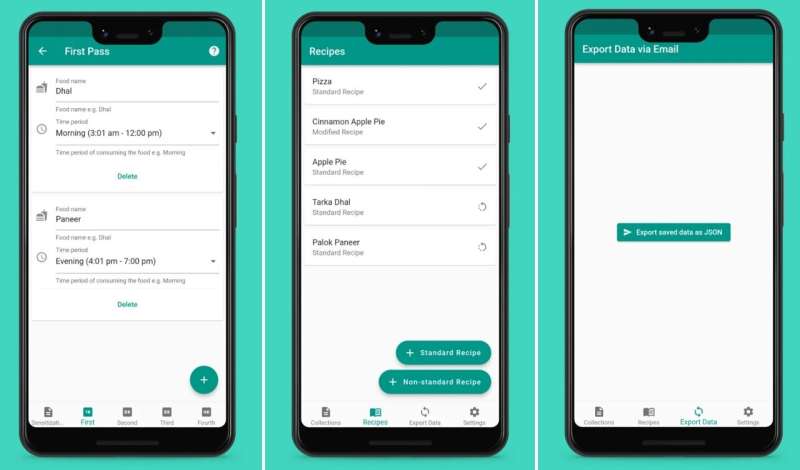This app can help design nutrition programs in real time

"Gibsonify" has been developed by a team of researchers from the International Crops Research Institute for the Semi-Arid Tropics (ICRISAT), Center for Global Equality and the University of Cambridge and is now ready to go live to improve nutrition programs globally.
Nutrition program planners, health professionals, nutritionists and local health and nutrition functionaries are the app's main expected beneficiaries with it reducing the time lag between dietary intake data collection and the creation of a scientific evidence base.
The evidence will guide policy formulations, implementation of nutritional interventions in target communities and the development of nutritious menus for pregnant and lactating women, adolescents, and senior citizens in vulnerable communities.
"This app can help plan mid-day meals effectively and customize approaches according to locally available food items in different regions of India," said Dr. Padmaja, Cluster Leader—Knowledge and Capacity Building, ICRISAT.
"We have gathered pen and paper data samples from 600 households in the Indian states of Telangana and Maharashtra and have access to a dietary survey conducted in Bihar," said Ms Kavitha Kasala, Associate Manager, ICRISAT.
The next phase will be feeding the data on "Gibsonify" to enable effective processing and management of the data with a real-time report card. The third stage will look at local-level functionaries' training and capacity building on how to use the app and the information generated.
How does it work?
"Gibsonify" provides a user-friendly interface to collect information about local recipes and nutrient intake, replicating the tested 24-hr dietary recall methodology developed by Gibson and Ferguson (2008).
"The Gibson method relies on a tested process to enhance the accuracy of the information captured. Every detail collected during the dietary survey is uploaded on the app directly for betterment of nutrition intake," explained Dr. Padmaja.
Time and cost-effective tool
The traditional pen and paper process of conducting a dietary survey and calculating nutrition adequacy is highly time-consuming. With the availability of a digital tool like Gibsonify, all the activities from data collection to nutrition capacity building, are done in real-time. It also provides the flexibility to add a new ingredient or recipe or any other additional information crucial for the accuracy of backend calculations.
Dr. Padmaja says that "once all the three phases of the app development are completed and tested, the app can benefit Anganwadi (childcare centers) and Accredited Social Health Activist (Asha) workers in conducting nutrition programs for pregnant and lactating women and children dependent on breastfeeding up to the age of two years. Using 'Gibsonify,' they can guide women on improving their nutrition intake, incorporating local foods and other recommendations without delay."
It will be an open-access and free-to-use app that can be eventually used on smartphones, tablets, or computers and even offline, enabling surveys in remote areas. It can be used in rural or urban areas and not just limited to use in developing nations. The goal is to establish "Gibsonify' as a repository of nutrition data as information gathered on the app will be available for further research, considering there is wide scope of classifications and region-wise work that can be done on this digital tool.
More information: Github Repository: github.com/DigitalNutritionalAssessment/gibsonify




















